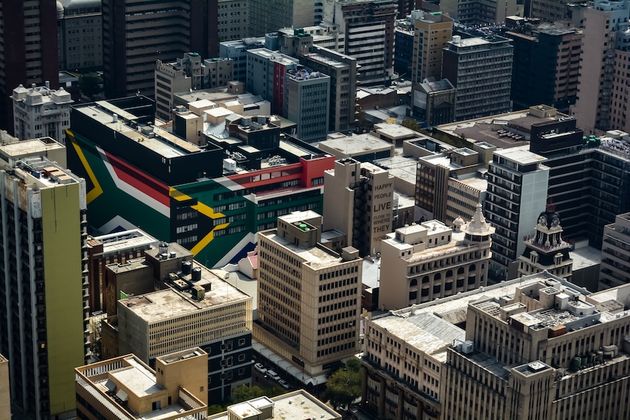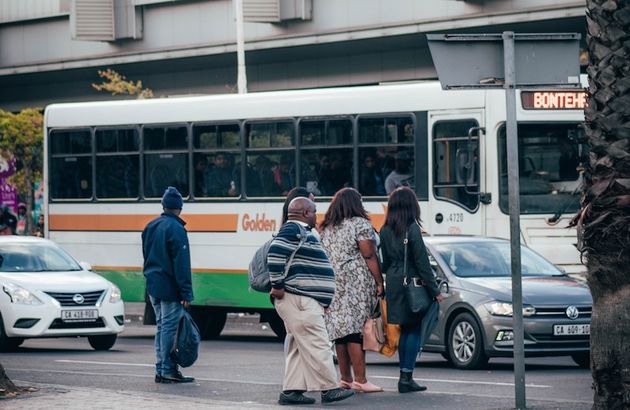South Africa continues to be in the midst of an economic, social and political crisis.
The country isofficially in a “state of disaster” since Februarydue to a shortage of energy resources that has led the national energy company Eskom to buy about 300 MW from private producers and neighbouring countries.
Since the resignation of former president Jacob Zuma, accused of up to 800 corruption cases, the government of the African National Congress (ANC), the party founded by Nelson Mandela, has lost the confidence of part of the population. Some are taking the streeets in protest.
The current president, Cyril Ramaphosa, who replaced Zuma after the 2019 elections, was also involved in a corruption scandal when millions of dollars were found on his property. However, he has been re-elected by his party to head the 2024 presidential election candidacy.
According to the World Bank, South Africa is the most unequal country in the world, with 10% of the population owning 80% of the national wealth. That scenario “leads to poverty foe many households, and is exacerbated by regular power outages and corruption. So the situation is dire”, says Moss Ntlh, the secretary general of the Evangelical Alliance of South Africa (TEASA).
Loss of status as a continental power?
South Africa’s GDP grew by 200% between 2000 and 2020, according to data shared by Spectator Index. Its wealth is based on the export of gold, diamonds and platinum, although it has also grown in tourism services and the technology industry in recent years.
However, the economic crisis has led to an annual inflation rate of 7.1% in March 2023 and an unemployment rate of 32.7% of the population, reaching 61% among young people.

“A inflation rate higher than that of Europe is nothing new for the country”, explains Johannes Reimer, director of the Peace and Reconciliation Network of the World Evangelical Alliance (PRN-WEA), who knows the South African reality very well.
Nevertheless, “South Africa was recently ´greylisted´ by the Financial Action Task Force (FATF), it seems mainly because of state capture, the investigation of corruption cases, and associated problems. This makes many companies unwilling to invest there and even withdraw their business from the country”.
If the situation is not reversed, TEASA believes that the country could face “further downgrades by the rating agencies”, compromising its status as a continental power. But for Reimer, “this might also be a wake-up call”.
Political crisis
Zuma’s imprisonment not only provoked a wave of protests and vandalism, in which over 200 people died, but also led to the party’s loss of popularity, which, along with the delicate situation and increased dependence on foreign countries, could further worsen his candidacy.
“The ANC has, for the last almost 3 decades, squandered public trust due to corruption. This is their last chance to demonstrate that they are able to renew the party and place it firmly on a course of good governance and anti corruption”, explains Ntlha.
For Reimer, “the government under Ramaphosa seemed to have a better plan and clear leadership, yet it does not seem as though this is showing in all areas of governance. Corruption is sadly so ingrained in the system and can not simply be changed”.
Reimer believes that “it is unlikely that the ANC will fall out of government within the next 10 years, as it is still widely seen as the liberating party. Voting for a different party is not apparent to a large part of the population. Also, a lack of education and short-sightedness do not help in exploring the political landscape”.

Churches: a long-term work
The South Africa Evangelical Alliance says “churches have a critical role to play in halting the cancer of corruption” because, “more than any other social organisation, they have a presence in every municipality and district. That allows them to press for stronger accountability for clean donations and environmental good practice”,
“Education is one of those interventions, started by churches who run early childhood development, which is seen as a good way to build a solid foundation to improve academic outcomes in later years”, underlines Ntlha.
Education is central to address another major problem, says Reimer, namely racism. “The racial divide is still there, even if the younger generation does seem to be more liberal in this regard”.
“One of the main reasons is the immense diffidence in the quality of education in formerly ‘white’ schools compared to formerly ‘black’ schools. How can you expect someone to be well educated, when the teachers are not properly educated? It takes time and a government that has the long-term interests and welfare of the population at heart, to create an equal society”.
Apart from education, “other churches carry out skills development and job creation projects, and others distribute food to feed the most vulnerable”, says the Evangelical Alliance. All of this is carried out by “poor churches who are ill resourced to serve their communities holistically”.





Stay Connected